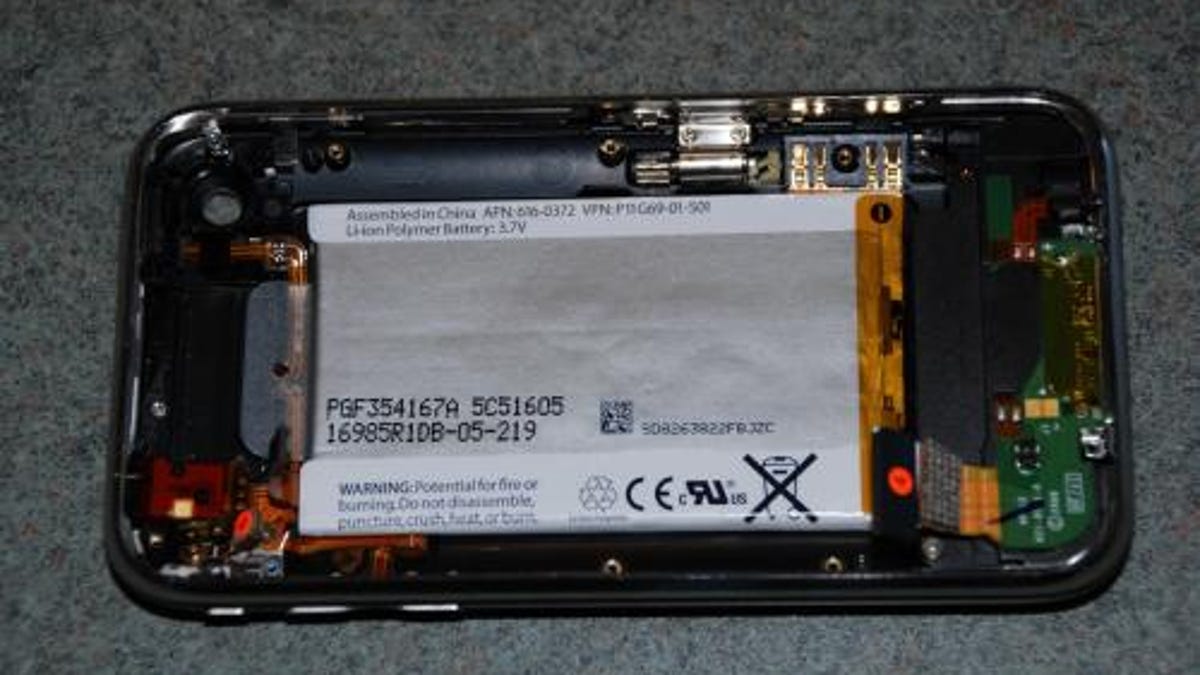EU directive could change iPhone battery design
Regulators are considering a directive that would force cell phone makers to offer batteries that are "readily replaceable," which is not the case with Apple's iPhone.

The European Union is considering a requirement that all cell phone batteries be easily replaceable, which might cause a problem for Apple's iPhone.
AppleInsider spotted that particular directive in an article in New Electronics, a U.K. trade publication, on the latest set of computer-industry regulations under consideration in Europe. The EU is thinking about enacting a new directive on batteries similar to its RoHS (Reduction of Hazardous Substances) directives from a few years back that forced the computer industry to eliminate harmful chemicals and/or materials from its manufacturing processes.
The "New Batteries Directive" would require manufacturers to make sure their batteries can be easily replaced, either by sliding off the cover or removing a couple of screws. The iPhone and iPod, of course, don't fit that mold; Apple requires owners to send their iPhones and iPods into the company to replace the battery, which is buried under the main circuit board.
It's not clear that the directive--which is very vaguely worded at present--would force drastic changes in the design of the iPhone. As AppleInsider notes, the idea behind the directive is to prevent batteries from ending up in landfills, and if Apple is able to show the E.U. that its battery replacement program prevents that result, that might meet the requirements of the directive.
Still, the proposed wording does require that cell phone batteries be designed in such a way as to be "readily removed," according to New Electronics. As these teardown photos from our friends at Tech Republic show, that's not the case with the iPhone.